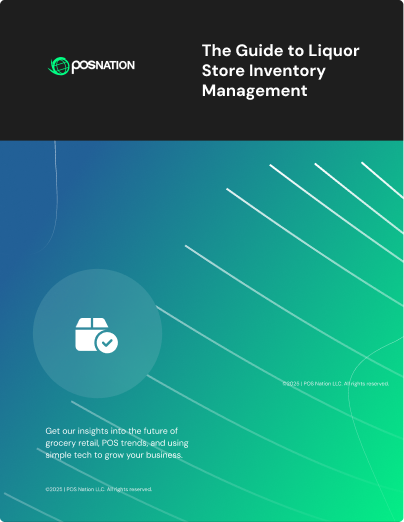Are you doing everything you can to make your liquor store as profitable as possible? You can focus on increasing your liquor store sales, but without a baseline understanding of how much your store should be making, this can be a difficult question to answer.
Opening a liquor store requires a significant upfront investment between licensing fees, building leases, and bulk-purchasing stock. You’ve put together an effective liquor store business plan, but in order to feel secure making that investment, you need to know you’ll be able to earn it back — and then some! You can keep tabs on everything from your business processes to the new and changing sales trends in the liquor industry, but how will you know for sure if you’re on track?
There are several factors that impact how much you make with your liquor store. This post will examine several of those factors, giving you a clearer picture of what you can expect from your profit margins.
Factors That Influence How Much Liquor Stores Make
Getting a new business off the ground is always hard work, but even once you are up and running, it can be challenging to determine your success at first. Unfortunately, when it comes to liquor store profits, no set number applies to all stores across the board. However, there are a few factors that can make it easier to estimate the appropriate expected profits for your specific store.
These factors, discussed in detail below, include location, relationships, and inventory. With a solid understanding of how these things influence your profit margins, you can more accurately estimate your expected profits.
In any retail environment, there is one essential piece of the money-making puzzle: a quality point of sale system that can process the transactions for your store. POS Nation has experience and expertise in every aspect of the point of sale process, from hardware to software. Take a look at how POS Nation can help you reach your goals, and read on to learn some of the factors that influence liquor store profits.
Location
Most of us have heard the adage that three things matter for real estate value: location, location, location! This saying is also somewhat true when it comes to the profitability of your liquor store. Let’s look at some location-related factors influencing how much you can expect to make at your store.
Security
The first location-related factor that can influence your profits is the level of security required in your store’s area. Does the building you’re leasing offer security measures, such as parking lot security and storefront security gates, or will you need to install or provide these security features yourself? These are essential things to consider when estimating a realistic profit margin for your store.
Local Competition
Next, consider the competition in your area. How many other liquor stores are located near your business? Is the market crowded, or is there a lack of competition in your immediate area? If there are a lot of other liquor stores in your area, consider what kinds of products those stores are stocking. This information can give you an idea of gaps in the market that your store could fill.
Lease Price
Rent is often one of the most significant expenses for a small business, so the last location-related factor influencing profits for your liquor store is your lease price. If your store is in a more expensive area, your operating costs will be higher, as will your taxes. These are all elements that impact your profit margins.
People
People and relationships are at the heart of every business, but this is doubly true for retail. There are several key factors related to people that can influence your profits, which we’ll explore below.
Staffing
To keep the doors of your store open, you’ll need staff to run it. Of course, the pay rates of staff are a cost you need to consider for your business, but you should also be keeping a close eye on your turnover rates.
If you are constantly losing staff members, you will need to invest in searching for and hiring employees to replace them and pay for their training. A trainee is not as effective as a staff member who is fully ramped up and experienced, so if you’re finding yourself in a constant cycle of hiring and training, you will want to factor those costs into your calculations.
Vendor/Supplier Relations
Next, consider your relationships with your vendors and suppliers. As it is with many businesses, sometimes getting the best deals and treatment is all about who you know. If you have strong relationships with your suppliers, you might be able to work out discounts or deals that are mutually beneficial.
Clientele
It should not come as a surprise that the clientele of your store will impact how much you can expect to make. What type of customers generally frequent liquor stores in your area? What kinds of products are they looking for, and how much are they willing to spend on liquor?
Understanding the behaviors and expectations of customers in your area will help you more accurately assess the target profit for your business. If you don’t have a solid sense of your clientele’s habits, you may want to consider ways to get to know your customers better.
Inventory
The last category that influences how much your liquor store makes is related to your store’s inventory. As the operator of a liquor store, you know that purchasing inventory makes up a significant portion of your monthly and yearly budget. Let’s examine some of the specific inventory-related factors here.
Type of Inventory
The type of inventory that your store carries will be closely related to the clientele your store serves. Are you stocking mostly inexpensive products or more high-end inventory? This can impact both your upfront costs and your profit margins, depending on the specific products you are stocking.
Inventory Tracking System
When it comes to your stock, nothing is more important than maintaining a reliable and efficient inventory management system. Your inventory tracking processes can influence your profit margins in a number of ways.
First of all, there is the cost of maintaining inventory in man-hours. If your logging system is inefficient or difficult to understand, you may be wasting time and money tracking it. Secondly, we must consider the reliability of your inventory tracking system. If your inventory records are inaccurate, that opens your store up to theft or fraud that may go undiscovered.
One easy way to make sure your inventory tracking processes aren’t dragging down your bottom line is to invest in a quality liquor store inventory software that can assist you in tracking. Software like that offered by POS Nation is robust and easy to use, making liquor store inventory management more reliable and less of a chore.
How Much Do Liquor Stores Make?
At this point, it should be clear that the above-listed factors will significantly affect how much you can expect to make with your liquor store. Most liquor stores see a profit margin between 20-30% annually for a ballpark figure, but this figure can go as high as 50% with the right circumstances and tools in place.
If you’re curious about how POS Nation’s tools can help your liquor store reach its maximum potential through effective and efficient inventory management, build and price out a POS system with us today!







 by Cort Ouzts
by Cort Ouzts


 by Gina Obert
by Gina Obert
